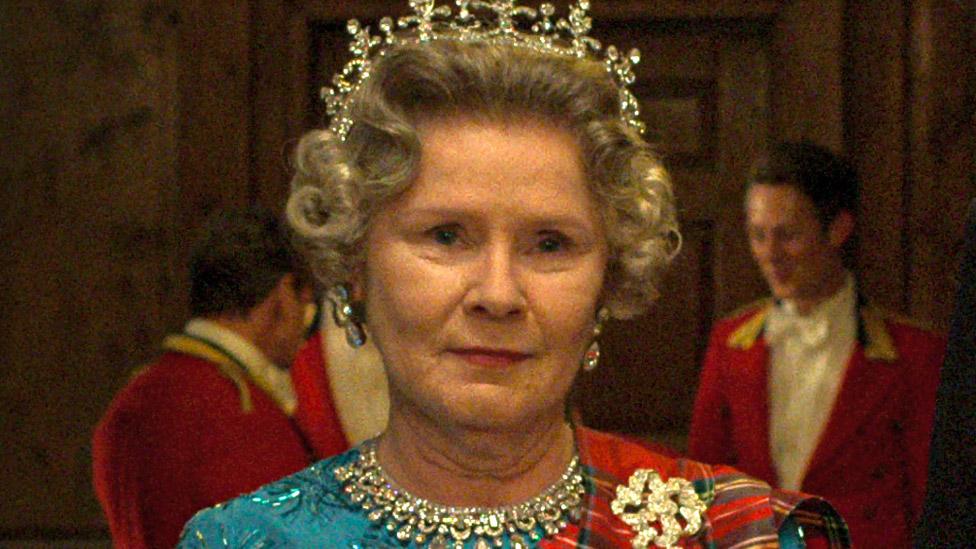The Crown: How has Netflix handled Princess Diana's death?
- Published
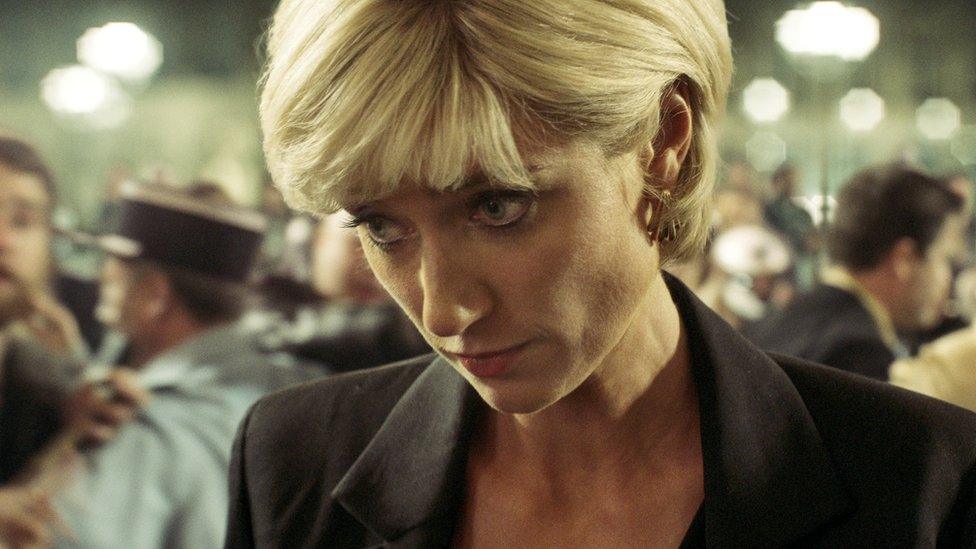
The show depicts Princess Diana's hounding by paparazzi
Princess Diana's death as a result of a car crash in Paris may have happened more than 25 years ago, but is still fresh in the memories of many.
It's why the portrayal of such events in the new series of Netflix's The Crown are under so much scrutiny.
The first part of series six, which was written by Peter Morgan and released on Thursday, has already divided critics for its portrayal of sensitive and private events.
Warning: This article contains spoilers.
Over the course of four episodes, Princess Diana's post-divorce life is explored - from her role as doting mother to Princes William and Harry, to her charity work on landmines in Bosnia and friendship with Egyptian businessman, Mohamed Al Fayed, and romance with his son Dodi.
Episode three focuses on the events leading up to Princess Diana's death, culminating in the car crash that killed her, aged 36 and Dodi, aged 42, in the Pont de l'Alma underpass in Paris.
In the fourth episode, which concludes the first release of the sixth series, we see a dramatisation of events preceding Diana and Dodi's deaths, including reactions from the royal family, the public and then-Prime Minister Tony Blair.
What it gets right
This portion of the series (the next six episodes are due to be released in mid-December) is dominated by the media attention Princess Diana gets, with paparazzi harassing her wherever she goes, whilst also showing her efforts to try and bargain with them to protect herself and her children.
Royal commentator and film critic Richard Fitzwilliams says this depiction "is pretty accurate" and goes as far as saying "she was hunted" by cameras.
He tells the BBC: "If you're frank about it, Diana did play with the press and [The Crown] did give some insight into that".
Mr Fitzwilliams also said the show's portrayal of the "absolutely terrible" bidding war by newspapers for pictures of the late princess felt true to history, as did the complicated relationship between the press and the royals at that time.
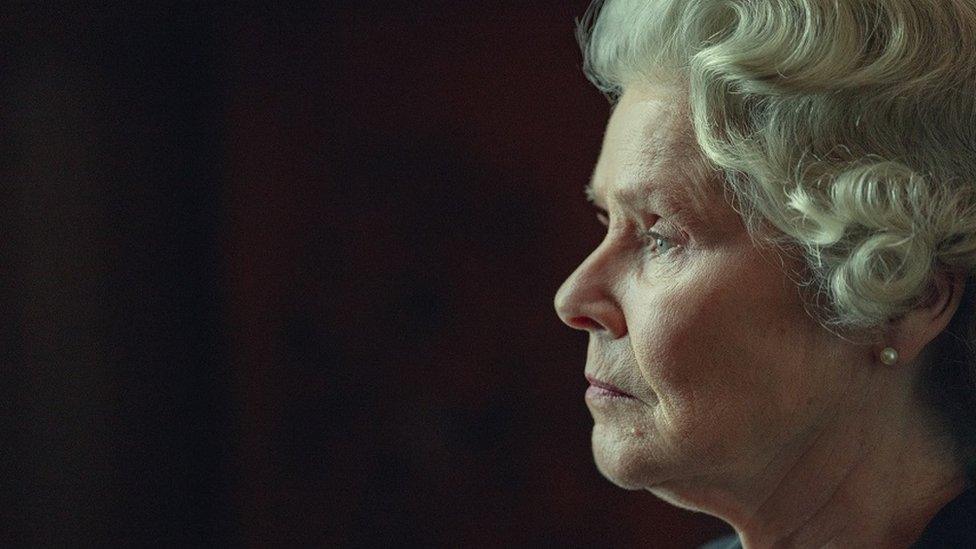
The Queen's reaction to Princess Diana's death is scrutinised in the show
The fourth episode also wrestles with the royal reaction to Princess Diana's death, with a storyline based on the Queen's apparent reluctance to make any public statement.
Academic and royal specialist Pauline MacLaren says the show's portrayal of the Queen and the public's reaction to the royals at this time "is fairly accurate".
She says the Queen's address to the nation taking place nearly a week, external after Diana's death "was certainly a big criticism" at the time.
"One of the crisis points that the Queen had in her reign was the public's reaction to her apparent lack of sympathy for Diana's death," she tells the BBC.
MacLaren also says she believes the grieving of Princes William and Harry in the show "is well handled".
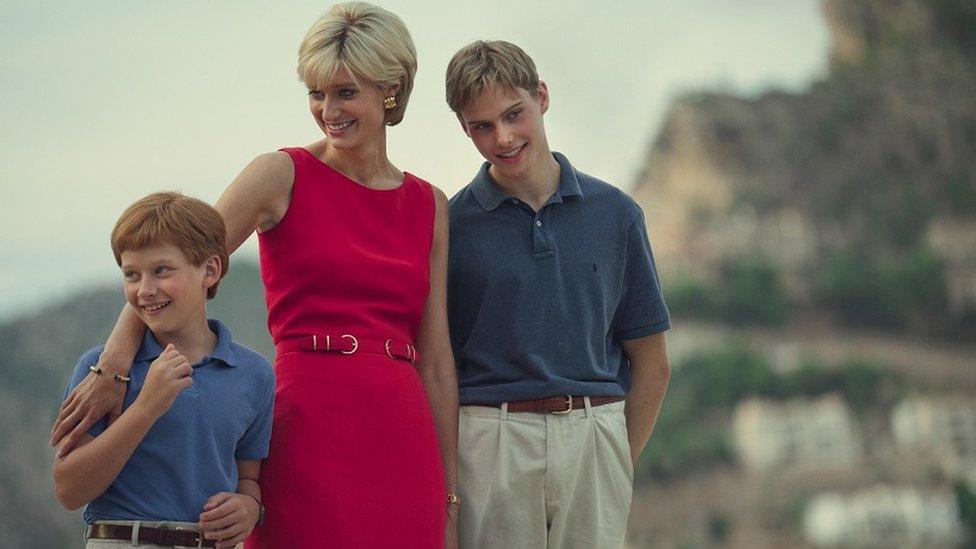
Fflyn Edwards as Prince Harry, Elizabeth Debicki as Princess Diana and Rufus Kampa as Prince William
The young princes, William played by Rufus Kampa and Harry, played by Fflyn Edwards, were 15 and 12 at the time their mother died.
In the show, Prince William is seen dealing with his mother's death by disappearing into the grounds of Balmoral Castle, in Scotland, for several hours in the pouring rain.
Whilst MacLaren says its not known whether these events are "fact or fiction", she sees this as a "sensitive portrayal of the boys' sorrow at their mother's death".
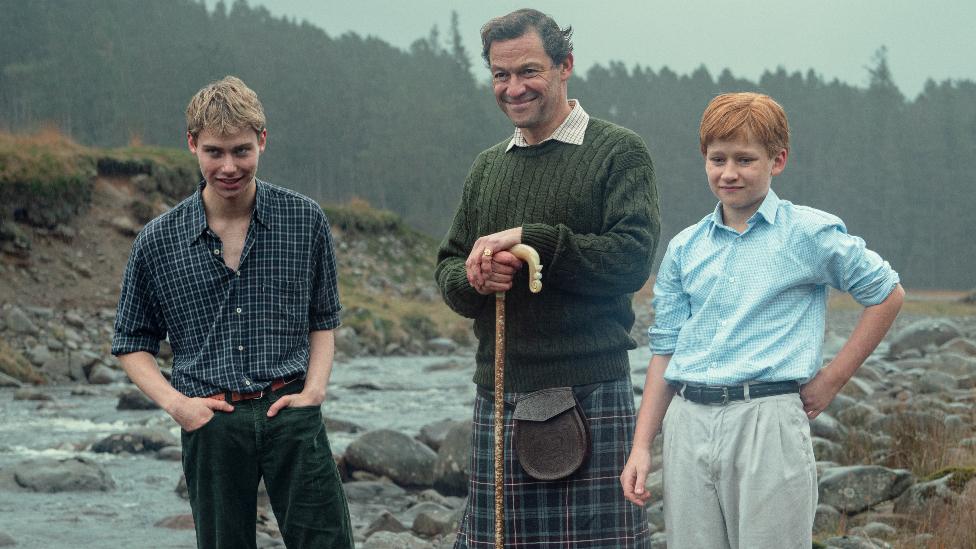
The Wire star Dominic West reprises his role as Prince Charles, as he was then, in the show's sixth season
What it doesn't get right
Prince Charles, now King Charles III, features heavily in scenes showing the aftermath of Diana's death in The Crown.
In scenes that dramatise his conversations with the Queen, he appears to press for a royal plane to bring back Diana's coffin from Paris, as well as calling on his mother to address the nation after she expresses hesitancy.
"I would read those [scenes] as fictionalised," MacLaren says.
"People know that the series is not a documentary and I think that has got through to everybody," she adds.
Charles appears in the show to have a sensitive side, crying at the Paris hospital where Diana was pronounced dead and comforting his sons.
Prince Harry wrote in his 2023 memoir Spare that "Pa didn't hug me" when he told him his mother had died and that a pat on the knee was the most comfort he received.
A young Prince Harry is also seen crying in a church service on the morning he learns of Diana's passing, when Harry says in his book that he didn't cry until he saw his mother's coffin being lowered into the ground.
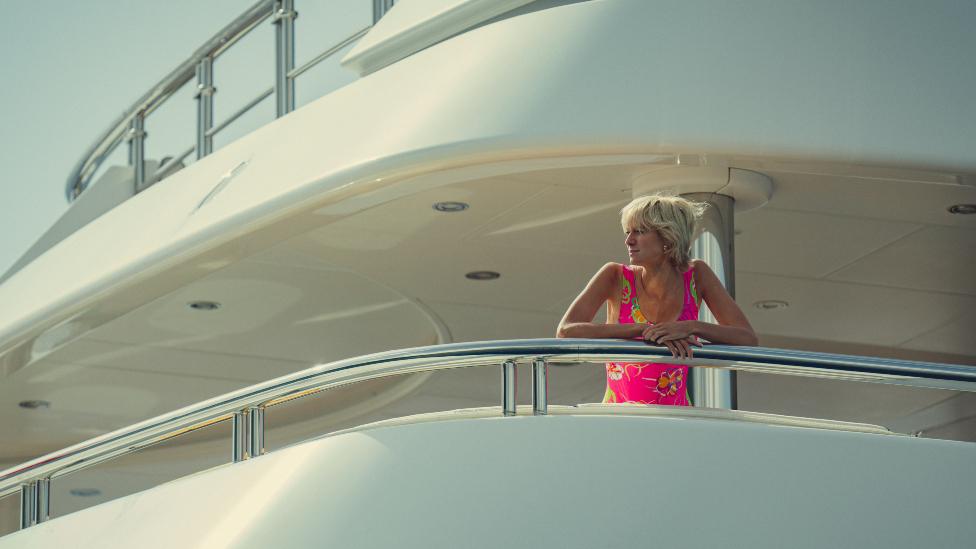
Australian actress Debicki, who plays Princess Diana, appears as a ghost in episode four.
"My body convulsed and my chin fell and I began to sob uncontrollably into my hands," he wrote.
"I felt ashamed of violating the family ethos, but I couldn't hold it in any longer. It's ok, I reassured myself, it's ok. There aren't any cameras around."
A part of the show which has probably received the most criticism is the appearance of ghosts of Princess and Diana and Dodi Fayed in episode four.
Richard Fitzwilliams calls the storyline, in which Diana "haunts" Charles and the Queen "stupid", "ridiculous" and Dodi haunting his father, "somewhat of a caricature".
He sees this as a transgression for British writer Peter Morgan, who was also behind Oscar-nominated 2006 film The Queen, which depicts the events following the death of the Diana.
"The odd thing is the writing [of the ghost scene] compared to The Queen, which is superb and holds up extremely well".
Fitzwilliams also takes issue with some of the speculative scenes throughout series six, including the portrayal of Diana and Dodi's growing romance and conversations with Diana and her sons.
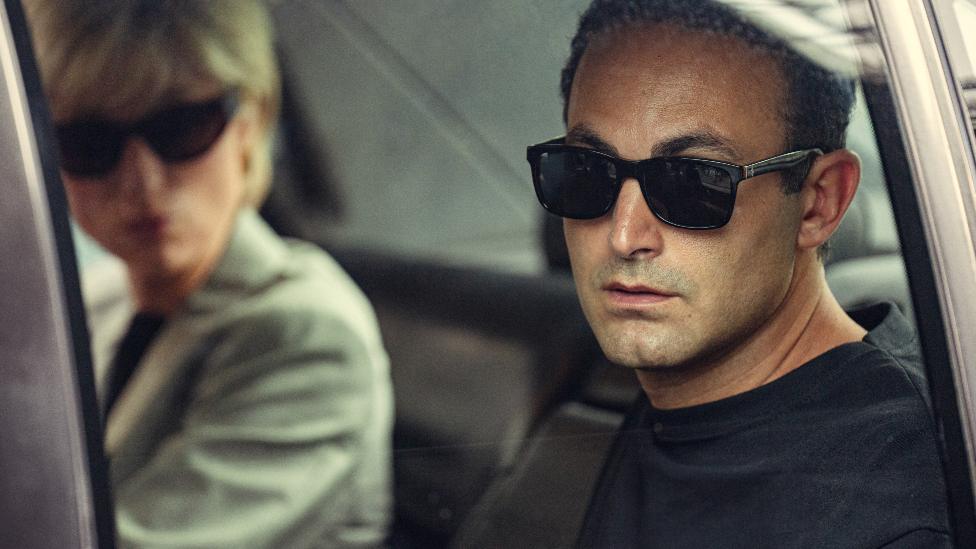
Khalid Abdalla plays Dodi Fayed
In real life, Diana and Dodi had probably known each other for around a month before they died, which is accurately portrayed in the show, but it remains unknown whether Dodi proposed to Diana or not.
"There's a 10-minute scene [in episode three] between Dodi and Diana in Paris before they take their fateful journey," Fitzwilliams says.
The pair are seen trying to help each other with issues plaguing their lives, with Diana making an admission that she wants to spend more time with her children, and Dodi admitting he wants to break away from his controlling father.
"It's bad, it's cliché - they're psychoanalysing each other and Dodi has an imaginary conversation with his father," Fitzwilliams adds.
Again, a scene which shows the last telephone conversation between Diana, who is in Paris, and her sons who are with their father at Balmoral, has never been confirmed to have taken place.
"I think it would be very deeply hurtful if either of them saw it," Fitzwilliam says.
Prince Harry, who makes programmes for Netflix through his media company, has admitted to watching The Crown, external, but is yet to comment on whether he thinks it accurately portrays his family or not.
The second half of the final season, which will be released in December, will cover events including the Queen's Golden Jubilee, Prince Charles and Camilla's wedding and the courtship of William and Kate - now the Prince and Princess of Wales - at the University of St Andrews.
- Published16 November 2023
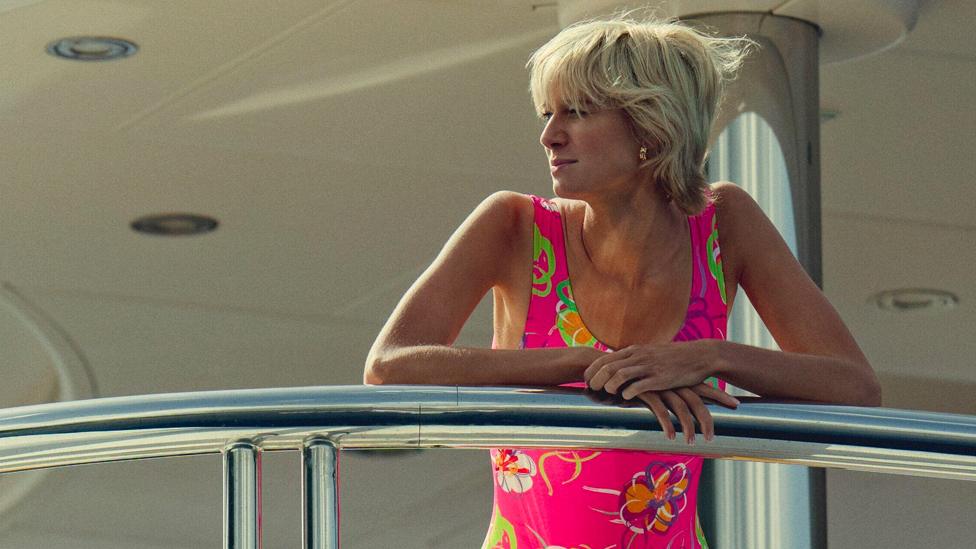
- Published7 November 2023
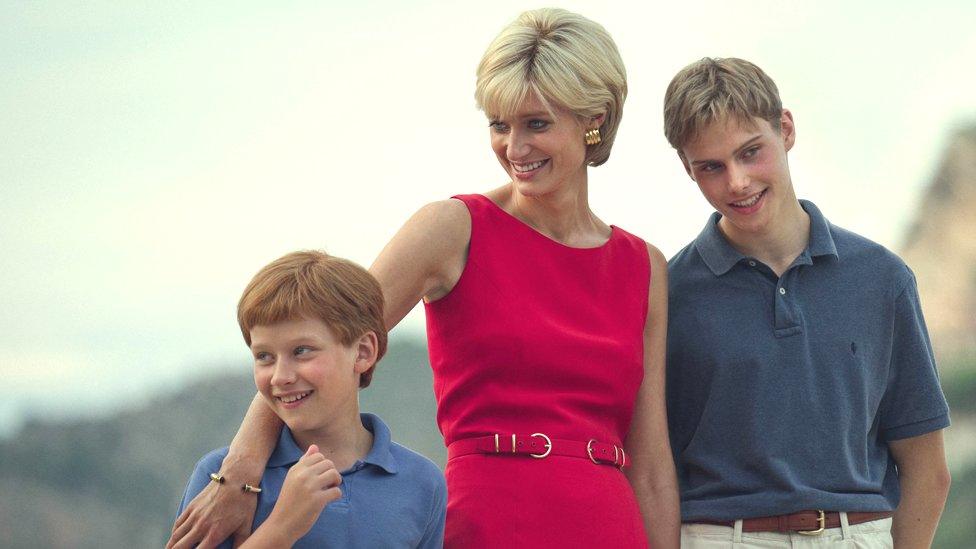
- Published24 November 2022
